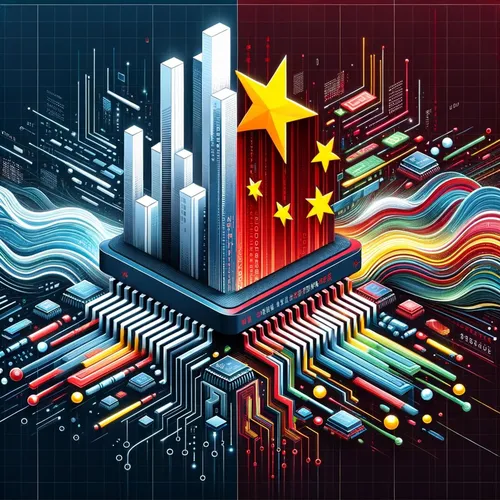Beijing's Quantum Leap: US-China Tech Tensions Hit Boiling Point
- Author
- Quiet. Please
- Published
- Wed 03 Sep 2025
- Episode Link
- https://www.spreaker.com/episode/beijing-s-quantum-leap-us-china-tech-tensions-hit-boiling-point--67622290
This is your Beijing Bytes: US-China Tech War Updates podcast.
Listeners, Ting here with your hypercharged Beijing Bytes—buckle up because US-China tech tensions have just gone quantum. In the past two weeks, cyber warriors and policymakers on both sides have gone from code red to code, “What the heck just happened?” Let’s zip through the news.
Last week, every major cyber agency from the US to Australia put out a panicked advisory about Chinese state-sponsored hackers. Names like Salt Typhoon pop up—these aren’t Pokémon, these are threat actors burrowing their way across American telecoms, government, even utilities. The US Cybersecurity and Infrastructure Security Agency called out campaigns targeting over 200 organizations and warned that these APT actors are executing a slow-burn, “hide in plain sight” strategy to position themselves for later disruption. The impact? Last year, 73% of US critical infrastructure organizations reported successful intrusions, with breach costs averaging $5.56 million—and those numbers are still climbing. Water treatment plants, police systems, university servers—nothing is sacred. This is espionage tailor-made for 2025, folks.
Fresh off the policy assembly line, the Biden administration revoked Validated End-User (VEU) status for tech giants Samsung and SK Hynix, making Korean chip operations in China look shakier than a new Linux distro on launch day. The revocation could hasten a split in the global semiconductor chain that neither Seoul nor Beijing wants to see. And China, not content to play defense, is closing out its 14th Five-Year Plan with a Wild West flourish—expect a spike in AI-powered phishing, zero-day exploits, and stealth campaigns into Q4. If you work in state IT anywhere in the US, now’s the time to audit your network twice and panic later.
Meanwhile, European agencies sound klaxons about data transfers to China-controlled territories. Czech intelligence publicly named and shamed Chinese group APT31 for attacks on their Ministry of Foreign Affairs, and the National Cyber and Information Security Agency warns that the very devices wiring up European critical sectors—think smart meters, EVs, cloud servers—could be quietly phone-home tools for Beijing.
Turning to high drama in hardware, a lavish Beijing military parade yesterday was like China flexing its digital and kinetic muscles for the world to see. With President Xi Jinping declaring China will not be “bullied” and that it is “rejuvenating the nation,” the message is not just for the domestic crowd but straight at Washington’s strategic planners. Former China correspondents remind us that the real signal is Beijing’s intent: push the world towards a tech order less centered on the US, more integrated with, well—Beijing.
On the industry front, despite Alibaba’s rally wowing markets, global analysts like Investment Week point out that China remains “a distant second” to the US in AI and especially semiconductor prowess. The US holds the upper hand in critical chip manufacturing capabilities, and the weaponization of chip supply chains—sanctions, restrictions, the works—remains the favorite tool on both sides.
Strategically, it’s clear: both countries are preparing the ground for a drawn-out tech Cold War. Experts forecast more targeted restrictions, more state-aligned cyber-intrusions, and, if geopolitical tensions spike—over Taiwan or the South China Sea—expect hackers to play kingmakers, not mere thieves.
That’s your whirlwind, Byte-sized scoop—thank you for tuning in to Beijing Bytes! Make sure to subscribe for more sharp, witty updates. This has been a quiet please production, for more check out quiet please dot ai.
For more http://www.quietplease.ai
Get the best deals https://amzn.to/3ODvOta
